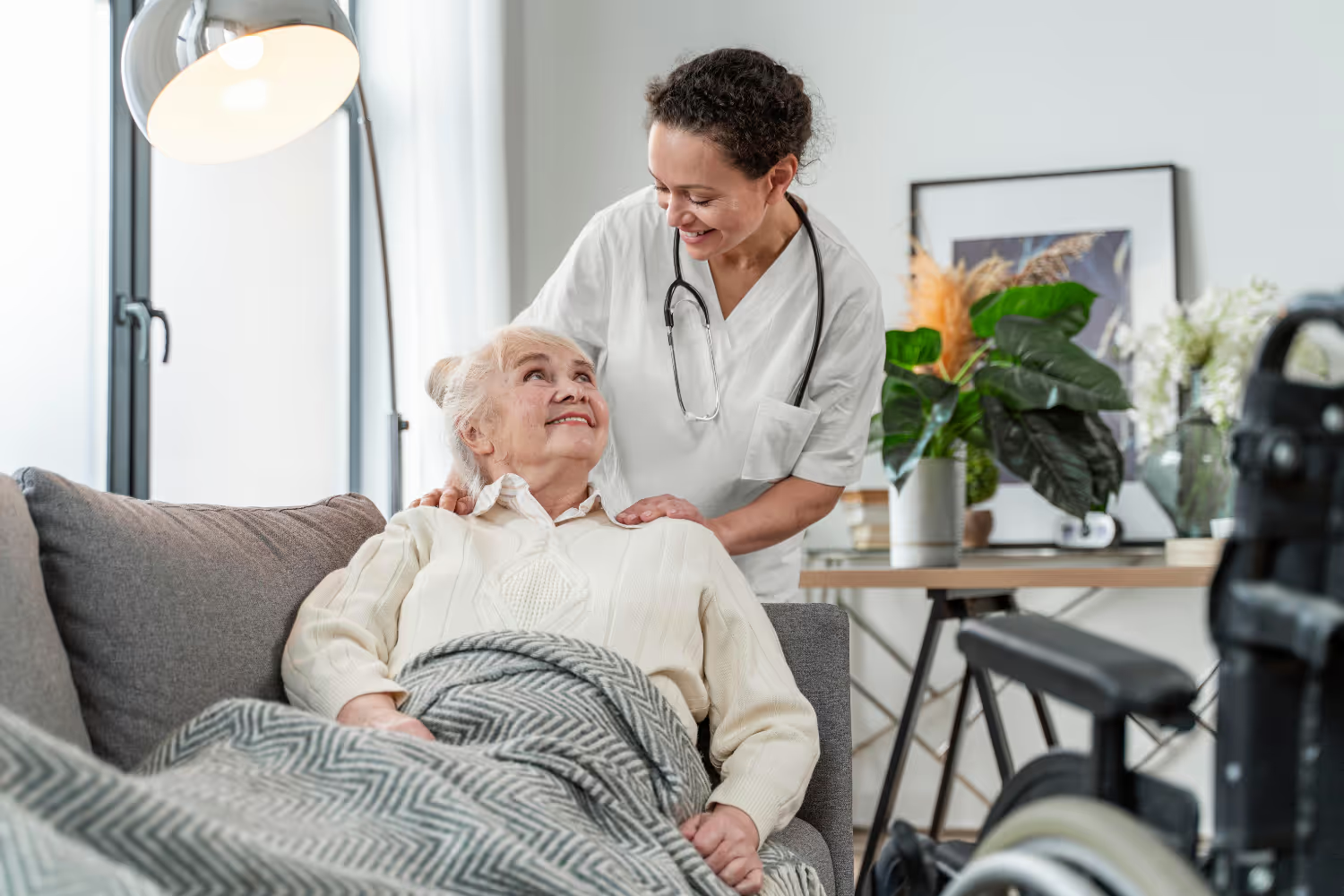22 Surprisingly Positive Effects of Technology on Mental Health
Even though there are challenges associated with how technology impacts our wellbeing, there are also benefits. This infographic shows 15 statistics that prove the positive effects of technology on mental health.

It may sound contradictory that technology could positively impact our mental health. After all, 38% of adults see social media use as harmful to our wellbeing. It’s as if we’re constantly hearing about technology’s negative effects.
But even though there are challenges with how it impacts our wellbeing, there are also benefits.
There’s a shortage of health workers across America, and mental health is one area most vulnerable to this shortage.
This is due to a growing demand for services but shrinking access to professionals. Many of these workers are aging out of the field and there aren’t enough younger workers to replace them. By 2025, the US will have a shortage in:
- Marriage and family therapists
- Psychiatrists
- Mental health counselors
- Social workers
- Psychologists
- School counselors
Because of the limited access to professionals, there are new technology innovations to address the concern. Options such as telehealth and mobile apps make it easier for anyone to access services from anywhere.
These benefits have become more notable since the beginning of the COVID-19 pandemic when there was even less access to care. Since then, more people are relying on remote services, using mobile apps, and receiving treatment.
As a result of the move toward technology options, more professionals and practices recommend and offer online tools. Some examples are proving to be successful which is fueling more funding for this health sector.
This infographic shows 15 statistics that prove the positive effects of technology on mental health.

Conclusion
Even though people may see technology as hurting mental wellbeing, it has proven positive effects.
There is less access to professional care which is only expected to get worse. But online options continue to emerge to address this shortage. It makes it easier for anyone to get help and even address their health on their own.
Because more people are looking to these technology options, health systems are expanding what they offer. And the industry is receiving more funding to continue providing these tools.
Positive Effects Statistics and Sources
- 54% of people who turned to telehealth between mid-March and early May 2020 were seeking help for a behavioral health concern - xtelligent Healthcare Media
- Virtual therapy and psychiatry was up 302% compared to before the COVID-19 pandemic - Fierce Healthcare
- 29% of psychologists are seeing more patients overall since the COVID-19 pandemic, and 96% said they’re treating patients remotely - American Psychological Association
- Over 115 million people in the US live in an area where the ratio of mental health professionals to residents is smaller than 1 per 30,000 people - GoodTherapy
- There are between 10,000 to 20,000 mental health-related self-help apps - American Psychological Association
- First-time downloads of the top 10 mental health apps in the US reached 4 million in April 2020 (up 17.6% from January) - Sensor Tower
- In 2018, Apple identified self-care apps as their App Trend of the Year with consumer spending on the top five mindfulness apps growing 130% - National Academy of Medicine
- Technology services are often the first or only service that someone has used for mental health support. Crisis Text Line provides free, 24/7 counseling and said that less than 45% of users had spoken to anyone else for crisis intervention - National Academy of Medicine
- The online program MoodGYM has over 1.2 million users. 40% received a referral to the program from a health professional - National Academy of Medicine
- 90% of mental health app users reported increased confidence, motivation, intention, and attitudes about their emotional health - Buckeye Recovery Network
- The average 30-day engagement rate of Kaiser Permanente’s online tool options is around 30%, or two to three times higher than the industry average - National Academy of Medicine
- 53% of clients who received online counseling reported that their depression became less intense - Bradley University
- The value of the global digital health market was $118 billion as of 2019 with mental health as one of the fastest-growing sectors - National Academy of Medicine
- Digital behavioral health startups received $588 million in the first half of 2020, almost equivalent to its annual funding in any previous year - Fierce Healthcare
Emphasize your product's unique features or benefits to differentiate it from competitors
In nec dictum adipiscing pharetra enim etiam scelerisque dolor purus ipsum egestas cursus vulputate arcu egestas ut eu sed mollis consectetur mattis pharetra curabitur et maecenas in mattis fames consectetur ipsum quis risus mauris aliquam ornare nisl purus at ipsum nulla accumsan consectetur vestibulum suspendisse aliquam condimentum scelerisque lacinia pellentesque vestibulum condimentum turpis ligula pharetra dictum sapien facilisis sapien at sagittis et cursus congue.
- Pharetra curabitur et maecenas in mattis fames consectetur ipsum quis risus.
- Justo urna nisi auctor consequat consectetur dolor lectus blandit.
- Eget egestas volutpat lacinia vestibulum vitae mattis hendrerit.
- Ornare elit odio tellus orci bibendum dictum id sem congue enim amet diam.
Incorporate statistics or specific numbers to highlight the effectiveness or popularity of your offering
Convallis pellentesque ullamcorper sapien sed tristique fermentum proin amet quam tincidunt feugiat vitae neque quisque odio ut pellentesque ac mauris eget lectus. Pretium arcu turpis lacus sapien sit at eu sapien duis magna nunc nibh nam non ut nibh ultrices ultrices elementum egestas enim nisl sed cursus pellentesque sit dignissim enim euismod sit et convallis sed pelis viverra quam at nisl sit pharetra enim nisl nec vestibulum posuere in volutpat sed blandit neque risus.

Use time-sensitive language to encourage immediate action, such as "Limited Time Offer
Feugiat vitae neque quisque odio ut pellentesque ac mauris eget lectus. Pretium arcu turpis lacus sapien sit at eu sapien duis magna nunc nibh nam non ut nibh ultrices ultrices elementum egestas enim nisl sed cursus pellentesque sit dignissim enim euismod sit et convallis sed pelis viverra quam at nisl sit pharetra enim nisl nec vestibulum posuere in volutpat sed blandit neque risus.
- Pharetra curabitur et maecenas in mattis fames consectetur ipsum quis risus.
- Justo urna nisi auctor consequat consectetur dolor lectus blandit.
- Eget egestas volutpat lacinia vestibulum vitae mattis hendrerit.
- Ornare elit odio tellus orci bibendum dictum id sem congue enim amet diam.
Address customer pain points directly by showing how your product solves their problems
Feugiat vitae neque quisque odio ut pellentesque ac mauris eget lectus. Pretium arcu turpis lacus sapien sit at eu sapien duis magna nunc nibh nam non ut nibh ultrices ultrices elementum egestas enim nisl sed cursus pellentesque sit dignissim enim euismod sit et convallis sed pelis viverra quam at nisl sit pharetra enim nisl nec vestibulum posuere in volutpat sed blandit neque risus.
Vel etiam vel amet aenean eget in habitasse nunc duis tellus sem turpis risus aliquam ac volutpat tellus eu faucibus ullamcorper.
Tailor titles to your ideal customer segment using phrases like "Designed for Busy Professionals
Sed pretium id nibh id sit felis vitae volutpat volutpat adipiscing at sodales neque lectus mi phasellus commodo at elit suspendisse ornare faucibus lectus purus viverra in nec aliquet commodo et sed sed nisi tempor mi pellentesque arcu viverra pretium duis enim vulputate dignissim etiam ultrices vitae neque urna proin nibh diam turpis augue lacus.


.avif)

